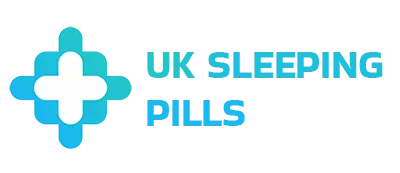In the world of pharmaceuticals, Etizolam is a name that often comes up in discussions about anxiety relief and sleep disorders. As a thienodiazepine, Etizolam is closely related to benzodiazepines, a well-known class of drugs used for their calming effects. Let’s delve into what Etizolam is, how it works, its uses, potential side effects, and how it compares to traditional benzodiazepines.
What is Etizolam Tablets?
Etizolam belongs to the thienodiazepine class of drugs, which are chemically similar to benzodiazepines. It is renowned for its anxiolytic (anxiety-reducing), sedative, and hypnotic properties. This makes it a valuable medication for individuals struggling with anxiety, panic disorders, and insomnia.

How Does Etizolam Tablets Work?
The mechanism of action of Etizolam is akin to that of benzodiazepines. It enhances the effect of gamma-aminobutyric acid (GABA), a neurotransmitter in the brain. GABA is crucial for calming neuronal activity, and by amplifying its effect, Etizolam promotes relaxation and reduces anxiety.
Medical Uses of Etizolam Tablets
Etizolam is primarily prescribed for:
- Anxiety Disorders: It helps alleviate the symptoms of generalized anxiety and panic attacks.
- Insomnia: Its sedative properties make it an effective short-term treatment for sleep disorders.
- Muscle Relaxation: It can be used to relieve muscle tension and spasms.
- Anticonvulsant: Etizolam has properties that can help control seizures in certain conditions.
Legal Status
The legal status of Etizolam varies significantly around the world. In some countries, it is available only by prescription, while in others, it may be controlled or completely banned due to concerns about abuse and dependency. Always check local regulations before considering its use.

Potential Side Effects of Etizolam Tablets
Like all medications, Etizolam comes with a risk of side effects. Common ones include:
- Drowsiness and Sedation: This can impair daily activities and increase the risk of accidents.
- Muscle Weakness: Users may experience reduced muscle strength.
- Dizziness: This can affect balance and coordination.
- Memory Impairment: There can be short-term memory issues.
- Tolerance and Dependence: Prolonged use can lead to these, requiring careful management and sometimes tapering off the medication under medical supervision.
Risks and Warnings
One of the most significant risks associated with Etizolam is the potential for overdose, especially if combined with other central nervous system depressants like alcohol or opioids. Overdose can lead to severe respiratory depression, coma, and even death. It is crucial to use Etizolam strictly as prescribed by a healthcare professional.
Etizolam vs. Benzodiazepines
While Etizolam shares similarities with benzodiazepines, there are notable differences:
- Half-life: Etizolam generally has a shorter half-life than many benzodiazepines, which can influence its duration of action and potential for side effects.
- Tolerance and Dependence: Some studies suggest that Etizolam might have a lower potential for tolerance and dependence compared to certain benzodiazepines, although this is not a universal finding and depends on individual usage patterns.
Conclusion
Etizolam can be a highly effective medication for managing anxiety and sleep disorders, but it must be used with caution due to its potential for side effects and dependency. Always consult a healthcare provider before starting or stopping Etizolam, and adhere strictly to prescribed guidelines to ensure safe use. Understanding the nuances between Etizolam and benzodiazepines can help in making informed decisions about treatment options.
By staying informed and cautious, patients can effectively manage their symptoms while minimizing risks, ensuring a balanced approach to their mental health and well-being.
